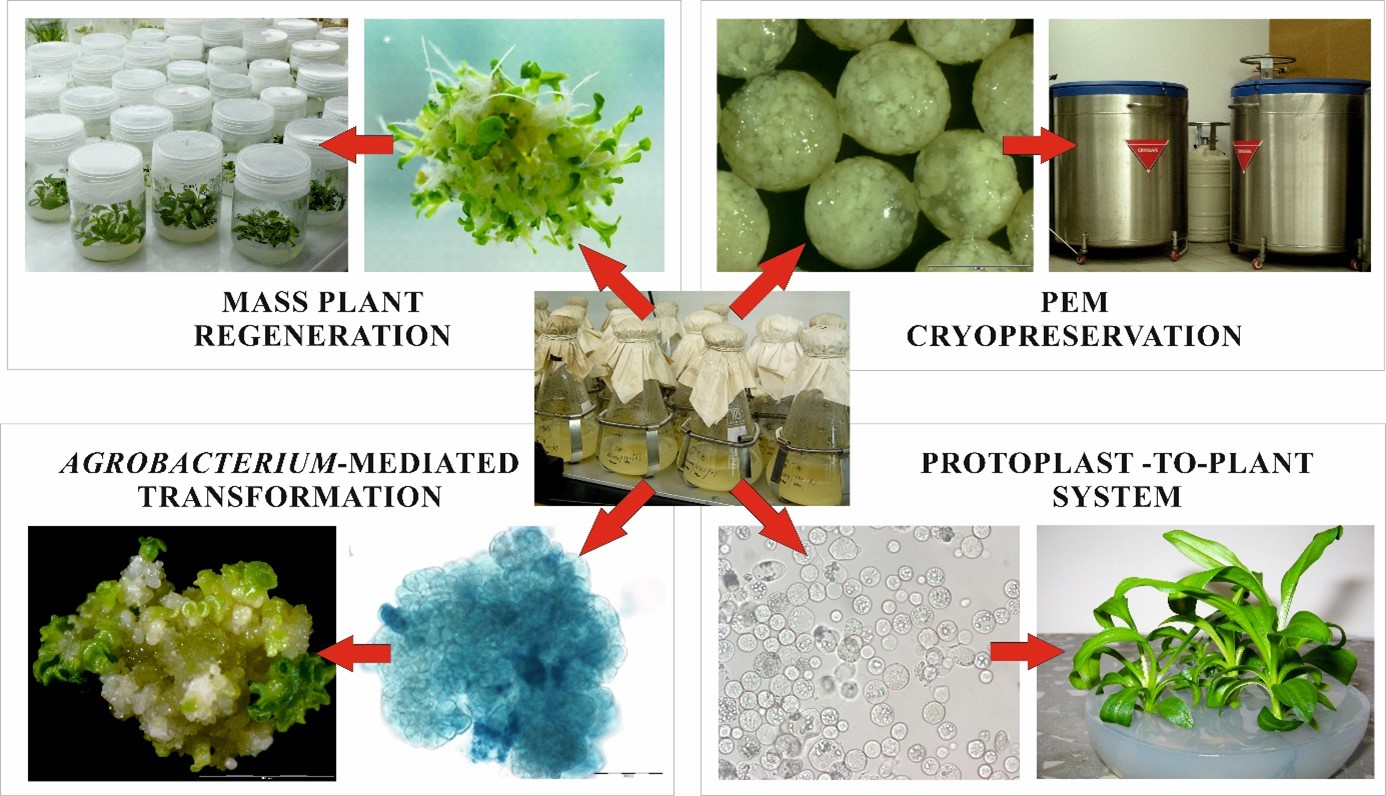Somatic embryogenesis (SE) is a complex process by which certain cells in the plant body acquire regenerative abilities and divide to form embryos and then complete plants. Since the first publication on the subject issued in 1958, this process has been described in many plant species and is used in their mass reproduction, e.g. for commercial applications. Because of the need to know and control this process, it is also being studied in depth in many laboratories around the world. The above diagram illustrates the use of embryogenic cell suspension cultures in the study and improvement of species belonging to the genus Gentiana.
The work presented here summarizes the achievements of Polish research groups working on SE systems developed for plants such as gentians, tree ferns Cyathea delgadii Sternb. and conifers, as well as for three species of model plants: Arabidopsis thaliana, Medicago sativa i M. truncatula. The ongoing experimental research aims to expand our knowledge of the cytomorphological, physiological, biochemical and genetic processes that occur during SE induction and embryo development, and makes significant advances in our knowledge of this phenomenon.
Mikuła A, Gaj M, Grzyb M, Hazubska-Przybył T, Kępczyńska E, Kępczyński J, Rybczyński JJ, Tomiczak K, Wójcik AM 2022 Polish contribution to global research on somatic embryogenesis. Acta Societatis Botanicorum Poloniae 91, 9115. https://doi.org/10.5586/asbp.9115
post
post
2022-10-24 09:20:32


